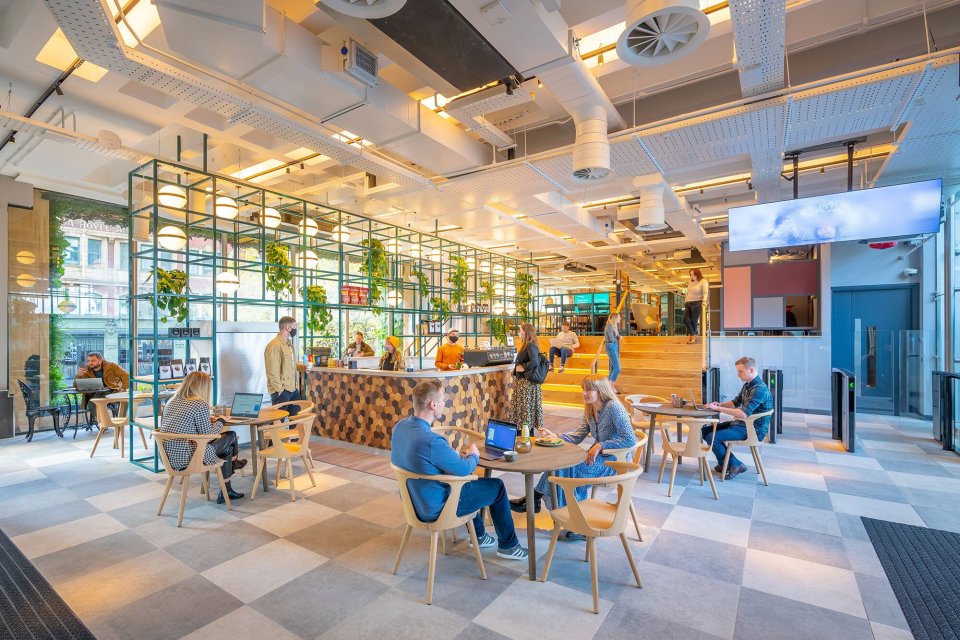Rebirth of Work by Bruntwood Works
By Bruntwood Works

“You’re still on mute”, “I can’t see you” and “can you see my screen?” are all phrases many of us hoped to see the back of in 2021. But, as we navigate our way through the UK’s third national lockdown in less than 12 months, it’s the reality so many of us are facing again.
Last year, businesses pivoted between investing in their workspaces to pandemic-proof offices, home working and supporting those who made the tentative return to the workplace as restrictions were eased. The hybrid working model truly came to fruition.
The government has kickstarted the roll-out of its national vaccination programme and has a target to vaccinate 14 million people by the middle of February. If this is achieved, there is a great hope that we could be back to some level of normality by spring.
After a year of so much change, what will the future workspace look like?
We brought together a cross-section of inspiring business leaders and experts to debate how the coronavirus pandemic will shape the future of work, and in turn the role of the office.
From facilitating collaboration and idea generation, to the importance of strong leadership, effective line management and being flexible to support employees, our panel has strong views on the future of work.
For Andrew Cooke, strategic director at Bruntwood Works, it’s all about connection, social interaction and flexibility: “You can’t replicate collaboration and innovation, the serendipitous conversations you have from moving around the office, or the osmosis of learning within a team.”
While Katy Leeson, managing director of Social Chain, emphasises the importance of authentic leadership when it comes to supporting wellbeing in the workplace: “The main thing we need to do as leaders is listen and we’ve created a culture committee to ask exactly what our people want.”
The importance of listening is something all of our panel agrees with, and Sir Cary Cooper makes a strong case for autonomy: “We need to look at what people wanted pre-Covid. It was flexible working. No one wanted 100% remote working - they wanted autonomy, and most didn’t sign up for the level of remote working we saw in 2020.”
How can we bring our team together?
It will come as no surprise that as landlords and providers of workspaces and places, we’re an advocate of bringing people together. The office is the home of collaboration and innovation, it provides a space to learn, develop and coach teams, it is part of a company’s culture and it can have a positive impact on the mental wellbeing of a workforce.
But what stood out from the discussion most was the importance of place. Yes, an office is a physical space that can bring people together to work, but it's also a space for socialising, building friendships and supporting health and wellbeing. It’s about more than just business.
For Lara Marrero at Gensler, it’s that “campfire moment” that we need to foster: “Whether we’re a customer, a landlord, an architect or a psychologist - it’s our responsibility to create spaces where people can develop and be happy.”
Read the report here:
The Rebirth of work - How workspaces can drive recovery
We hope this inspires you to think about how and where you work in the future, and what an important role the office can play when it comes to supporting your business and your employees.
Stay Connected!
Sign up to our newsletter for the latest news, updates and offers.